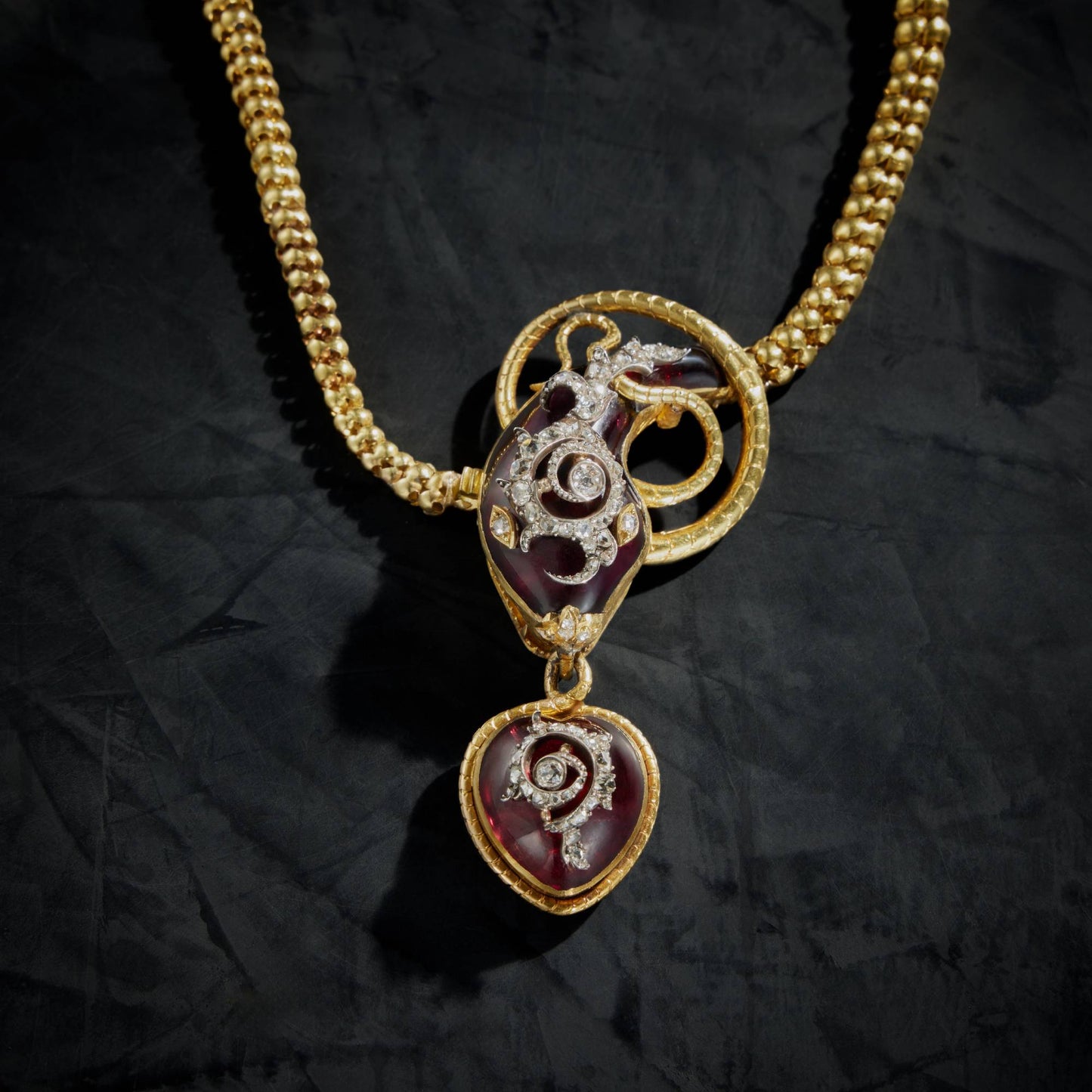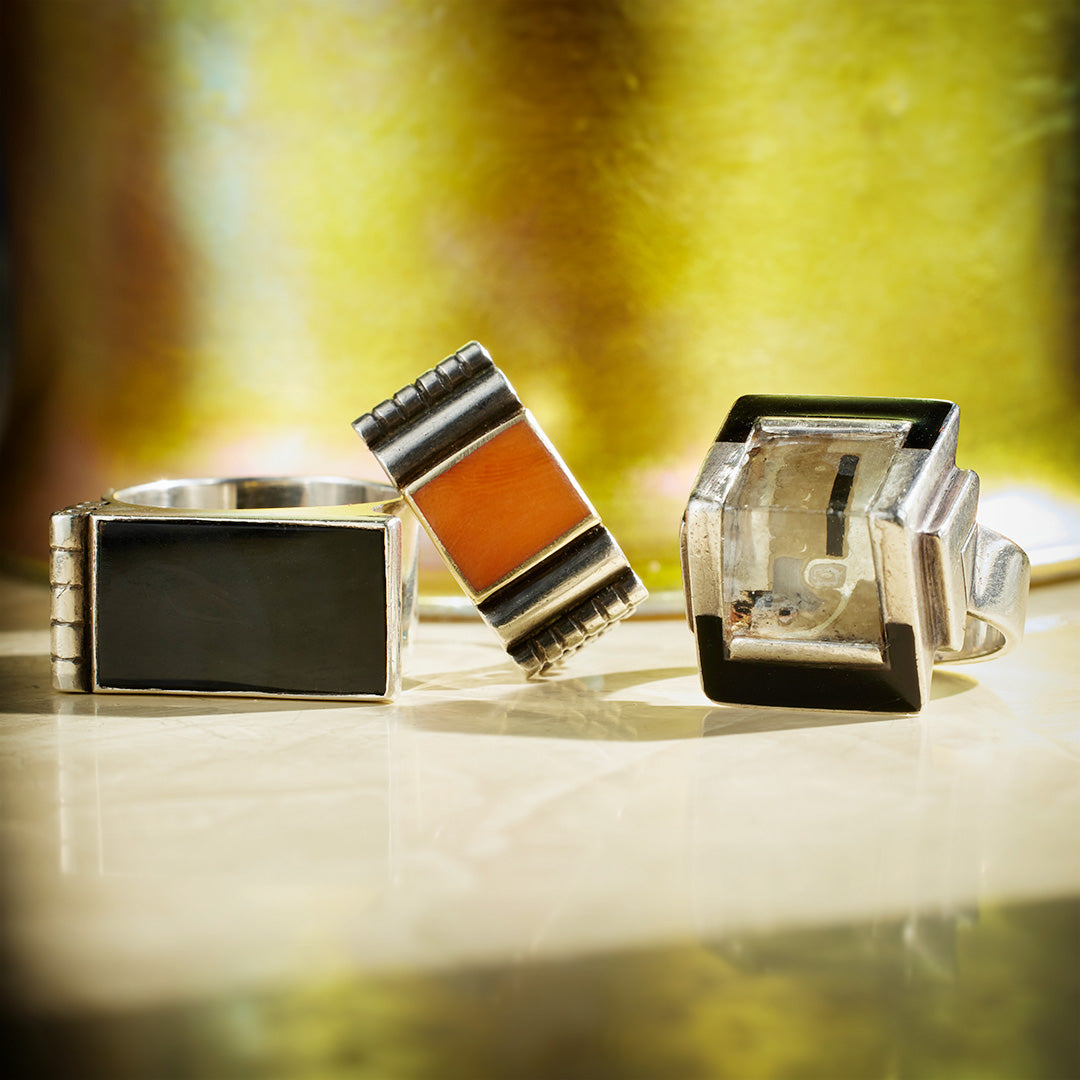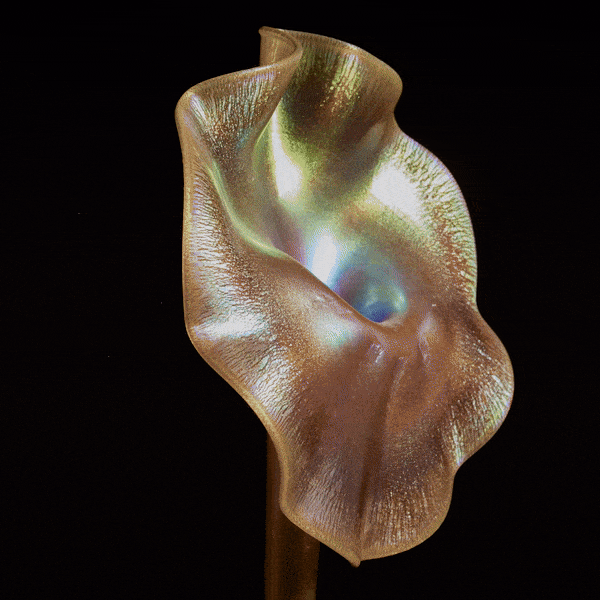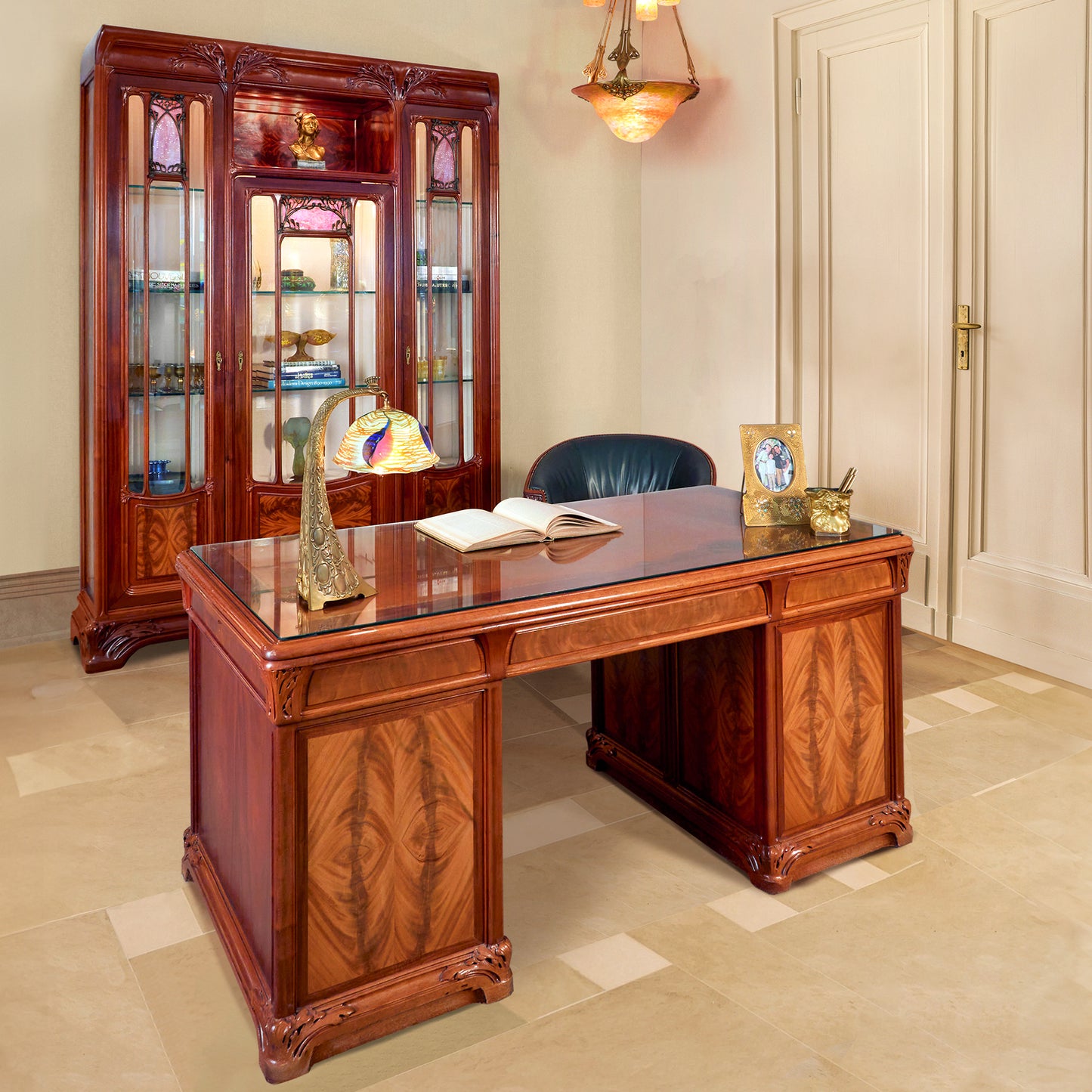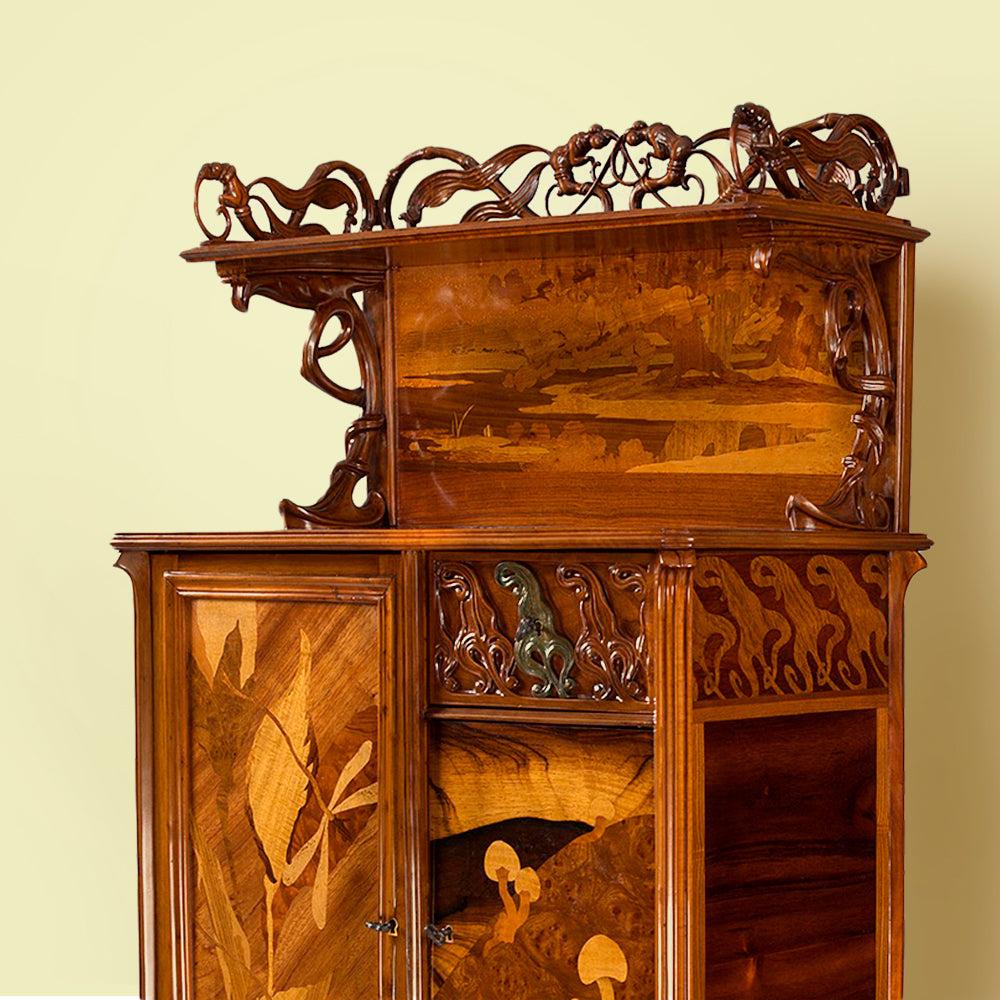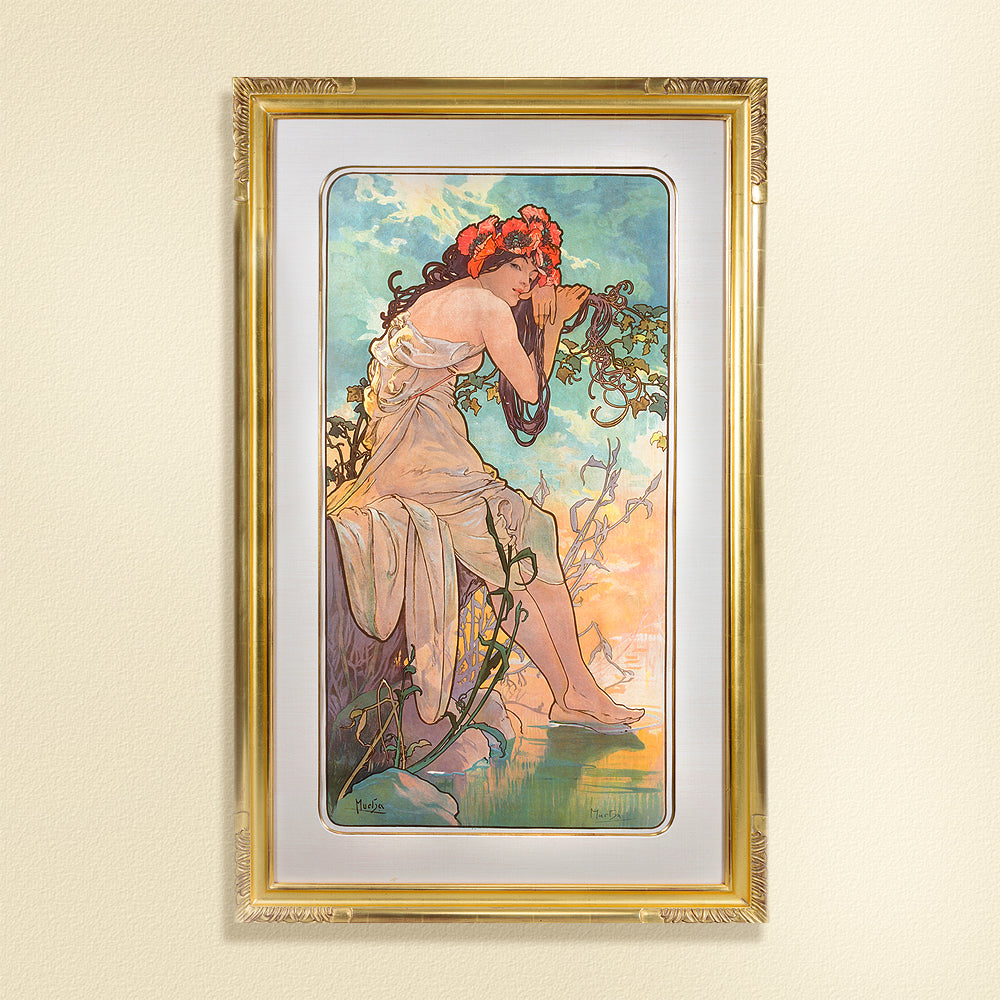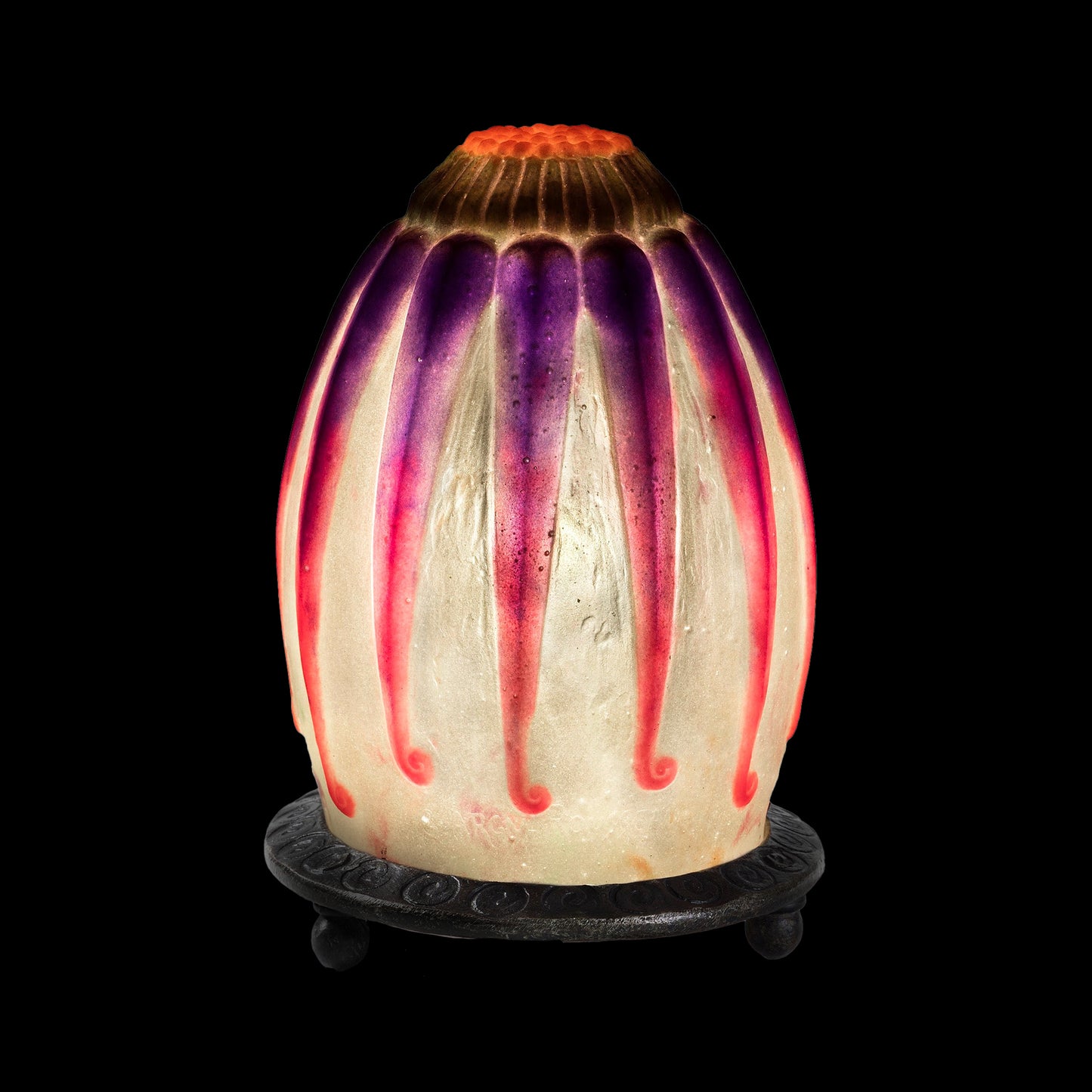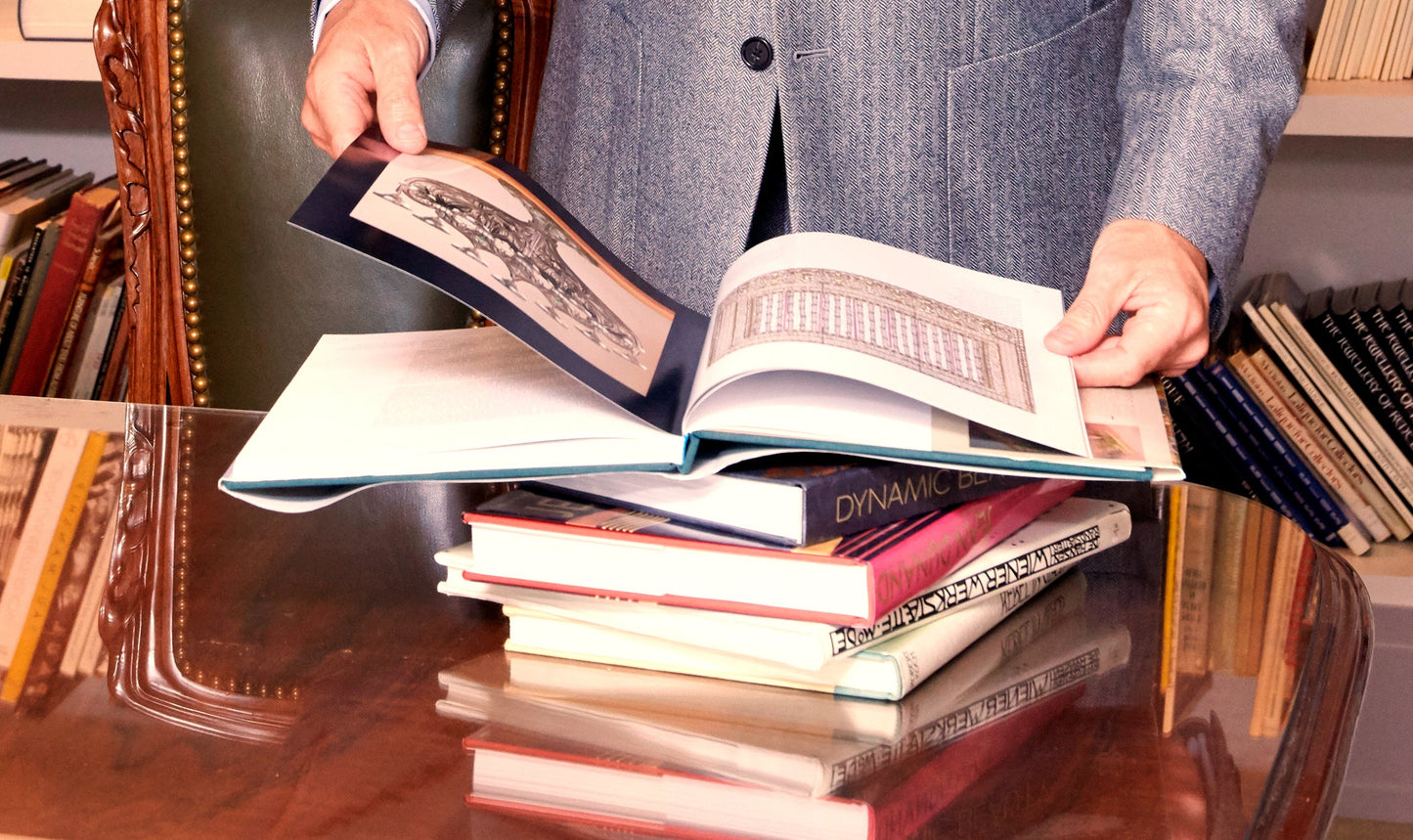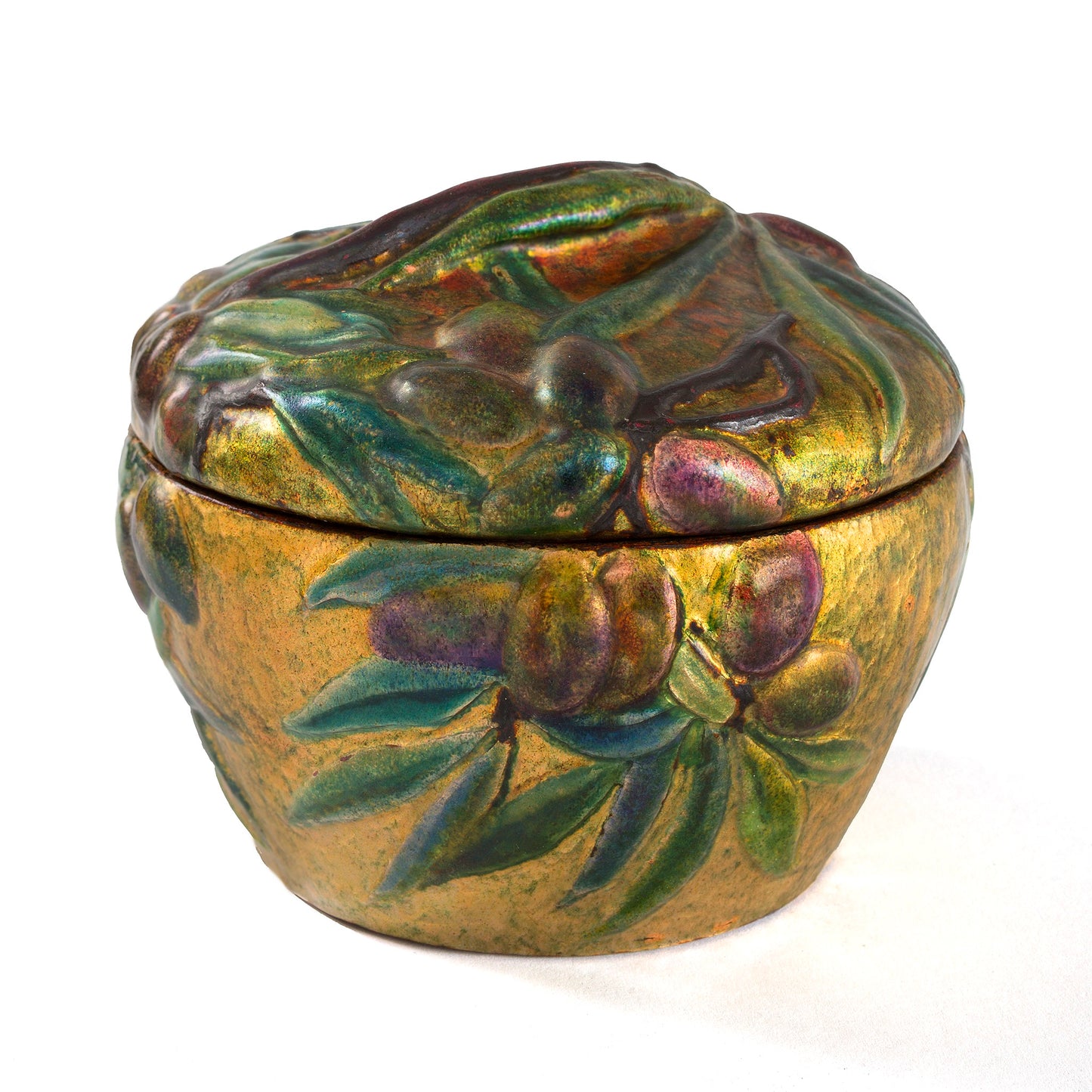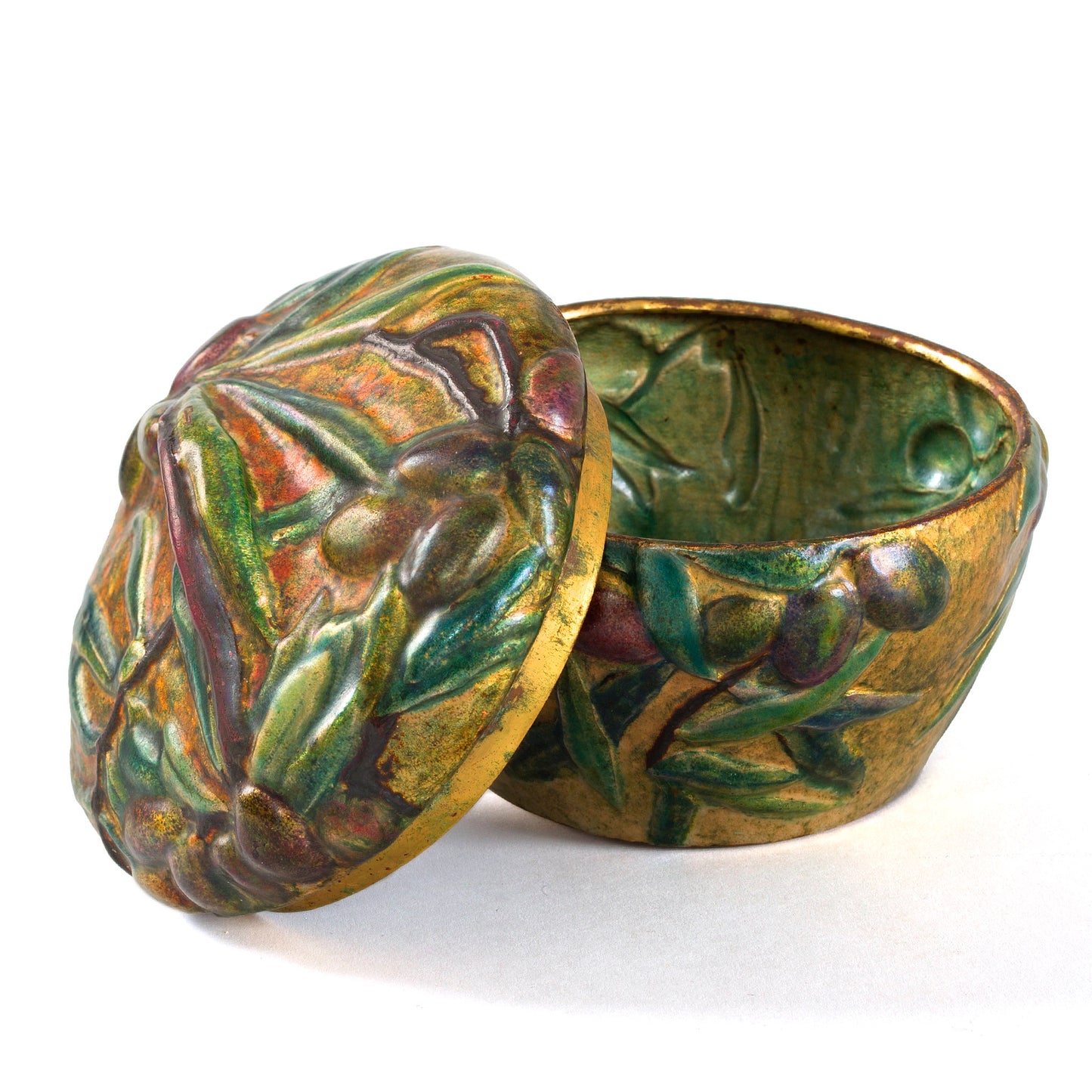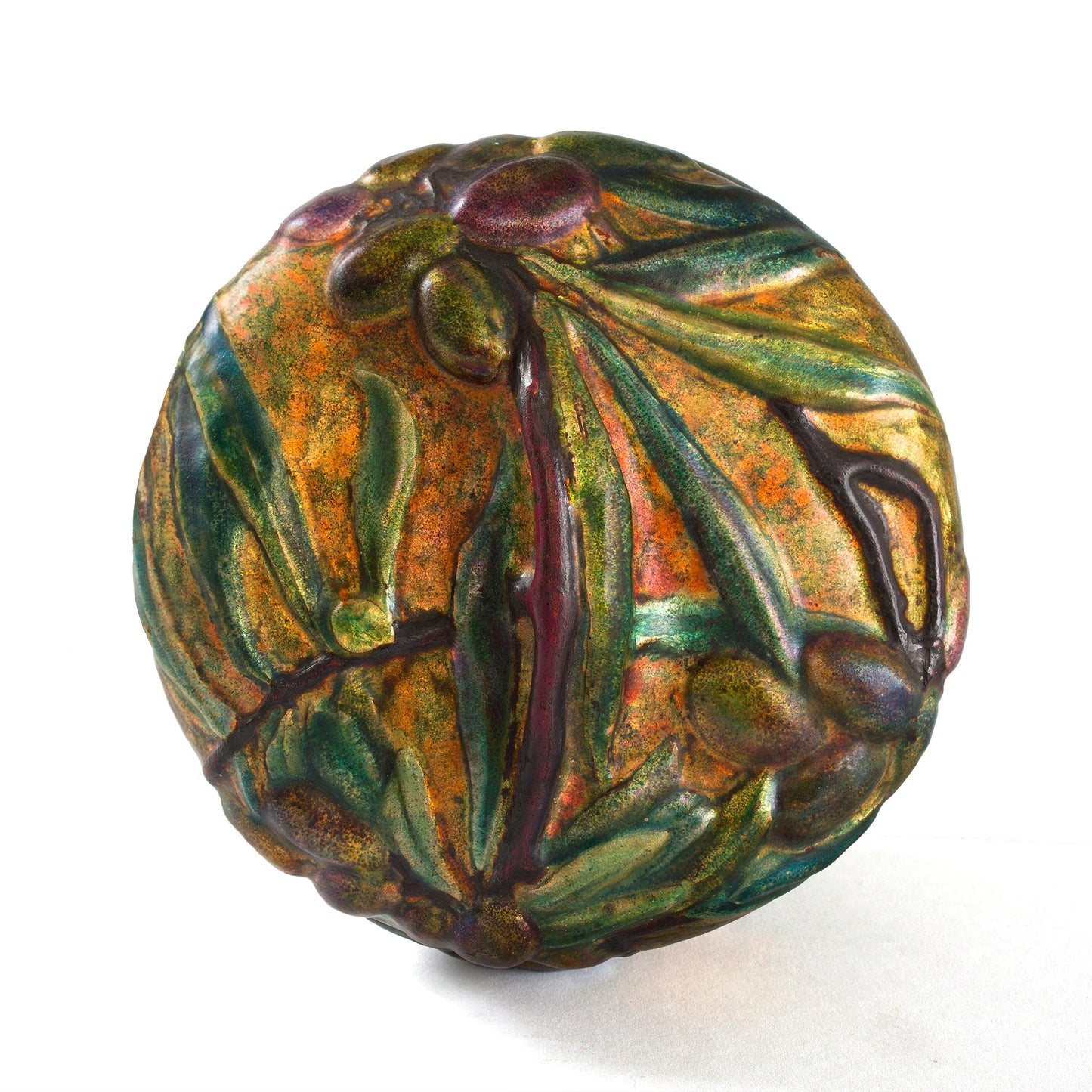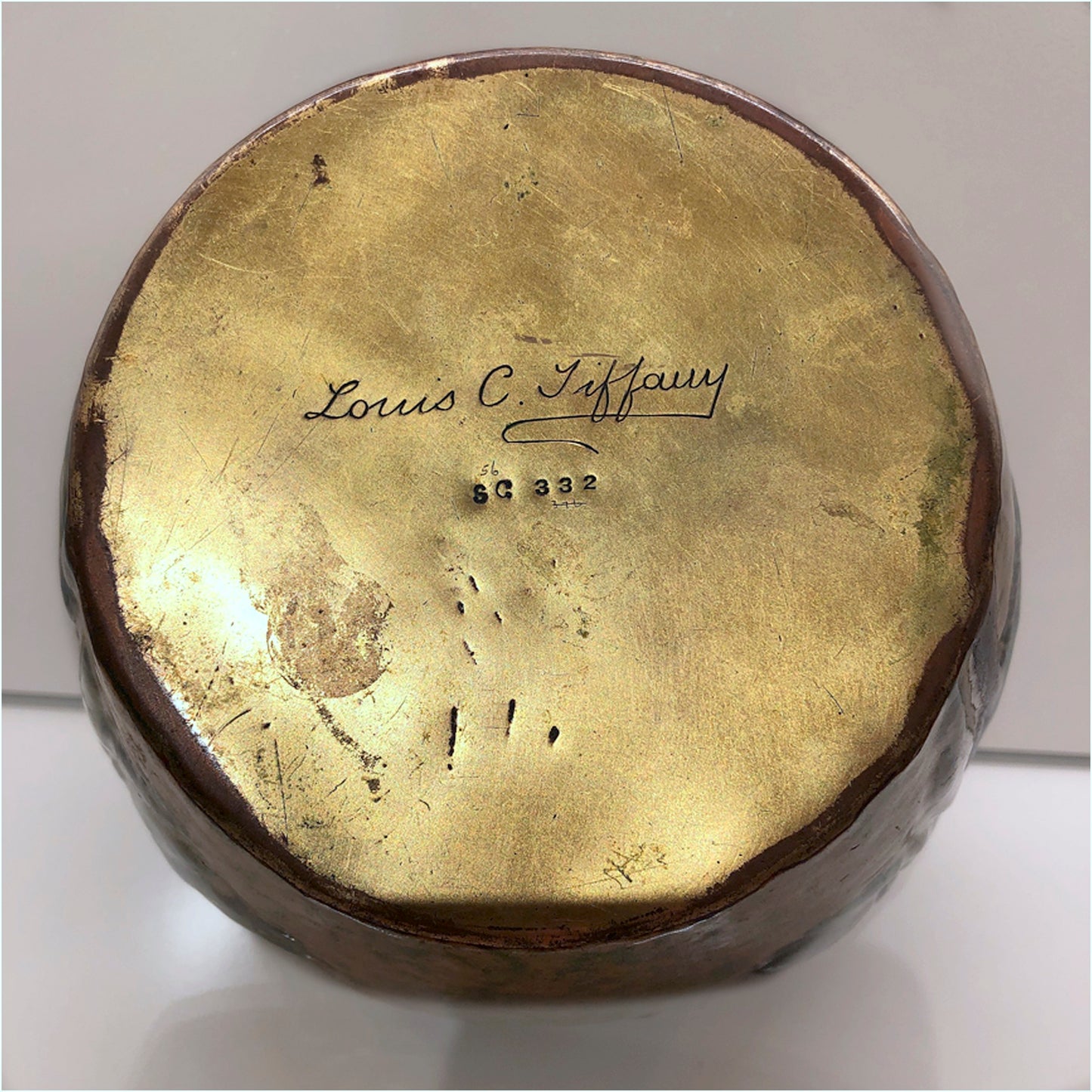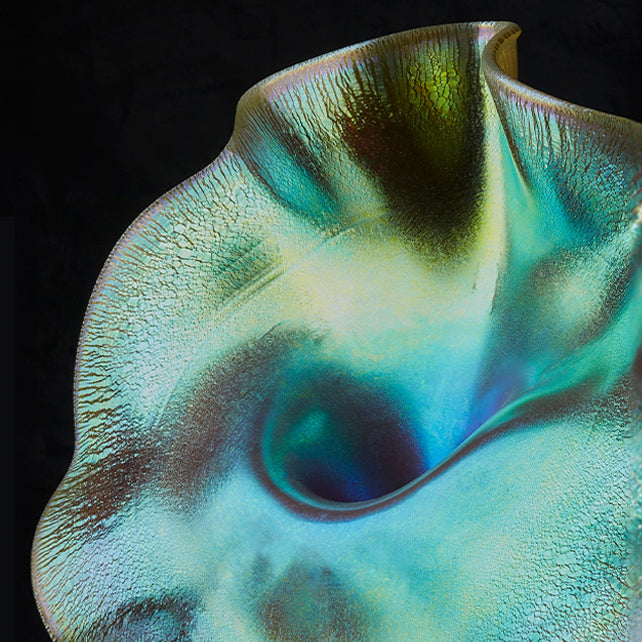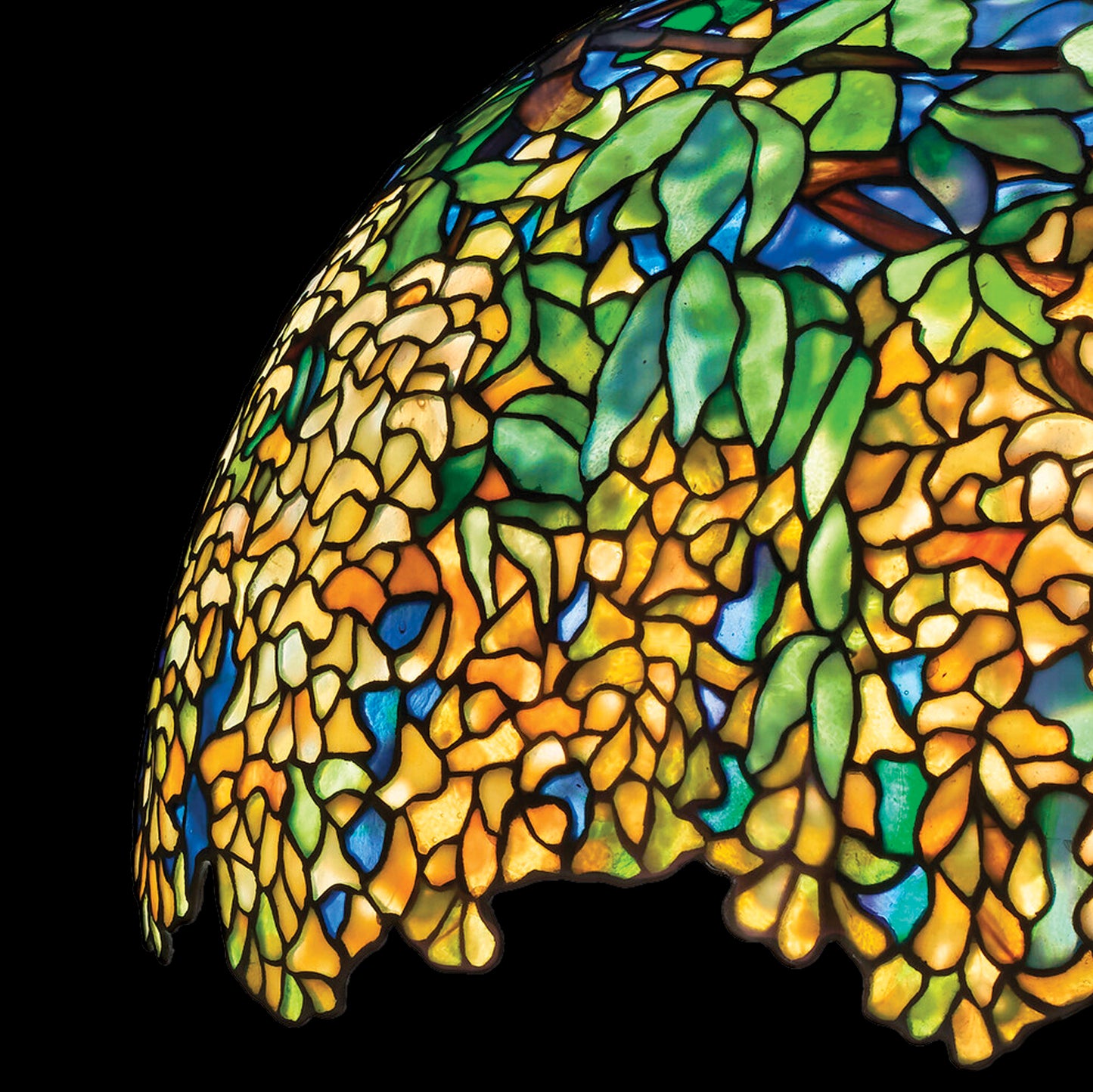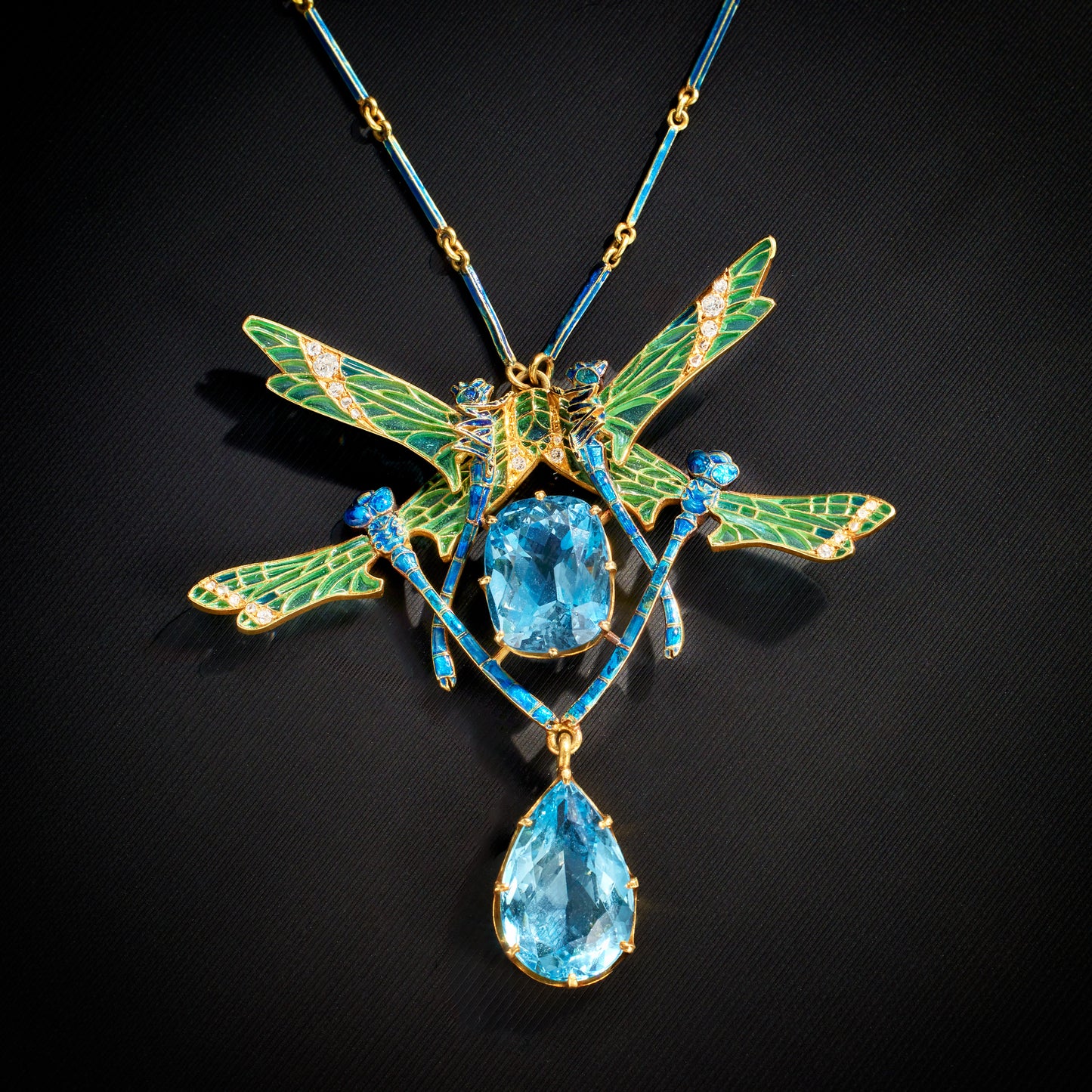Tiffany Studios New York Enameled Copper "Olive" Covered Box
This Tiffany Studios New York covered box by Louis Comfort Tiffany, covered with an enamel "Olive" motif, was executed by its Enamelware Department. The stoic composition is primarily composed of richly enameled copper, with the cover and body of this rare piece sharing decoration of subtly-hued olives, with purple-brown copper branches and deep green leaves. While the rarity of the object itself makes it an incredibly collectible item, the easy beauty of the composition also makes it an instant treasure.
Item #: T-19163
Artist: Tiffany Studios New York
Country: United States
Circa: 1905
Dimensions: 5.25" height, 6.5" diameter
Materials: Repoussé copper, Enamel and counter enamel
Signed: "Louis C. Tiffany and impressed SC 332"
Provenance: Parke-Bernet Galleries Inc., New York, Private Collection, circa 1965, thence by descent to the present owners
Literature: Box pictured in Behind the Scenes of Tiffany Glassmaking: The Nash Notebooks, by Martin Eidelberg and Nancy McClelland, New York, 2001, pp. 21 and 178 (for the model executed in pottery); Box also pictured in Louis C. Tiffany: The Garden Museum Collection, by Alastair Duncan, Woodbridge, Suffolk, 2004, p. 466 (for the model executed in pottery) and p. 471 (for the model executed in bronze pottery)
Item #: T-19163
Artist: Tiffany Studios New York
Country: United States
Circa: 1905
Dimensions: 5.25" height, 6.5" diameter
Materials: Repoussé copper, Enamel and counter enamel
Signed: "Louis C. Tiffany and impressed SC 332"
Provenance: Parke-Bernet Galleries Inc., New York, Private Collection, circa 1965, thence by descent to the present owners
Literature: Box pictured in Behind the Scenes of Tiffany Glassmaking: The Nash Notebooks, by Martin Eidelberg and Nancy McClelland, New York, 2001, pp. 21 and 178 (for the model executed in pottery); Box also pictured in Louis C. Tiffany: The Garden Museum Collection, by Alastair Duncan, Woodbridge, Suffolk, 2004, p. 466 (for the model executed in pottery) and p. 471 (for the model executed in bronze pottery)
In an interview for Town & Country magazine, Louis Comfort Tiffany compared his enameled vases against sapphire, topaz, opal, aquamarine, and other stones, concluding that enamels "showed much more depth and perspective than were found in the stones," an insight sensitively demonstrated in this monumental and masterful vase. Tiffany took a painterly, impressionist approach to his enamel work, in intentional contrast to renowned Japonesque and Renaissance Revival masters like Eugene Richet (enamel master for the house of Fontenay), Antoine Tard (enamel master for the house of Falize), and Paul Briançon (House of René Lalique). Much in the way that Tiffany used gemstones in his early jewels as mere means to achieve color effects and momentary impressions of nature, here, his use of opulent, varicolored enamel expresses Kalamata olives in the peak of their ripeness against the golden Mediterranean sky.
In an interview for Town & Country magazine, Louis Comfort Tiffany compared his enameled vases against sapphire, topaz, opal, aquamarine, and other stones, concluding that enamels "showed much more depth and perspective than were found in the stones," an insight sensitively demonstrated in this monumental and masterful vase. Tiffany took a painterly, impressionist approach to his enamel work, in intentional contrast to renowned Japonesque and Renaissance Revival masters like Eugene Richet (enamel master for the house of Fontenay), Antoine Tard (enamel master for the house of Falize), and Paul Briançon (House of René Lalique). Much in the way that Tiffany used gemstones in his early jewels as mere means to achieve color effects and momentary impressions of nature, here, his use of opulent, varicolored enamel expresses Kalamata olives in the peak of their ripeness against the golden Mediterranean sky.
